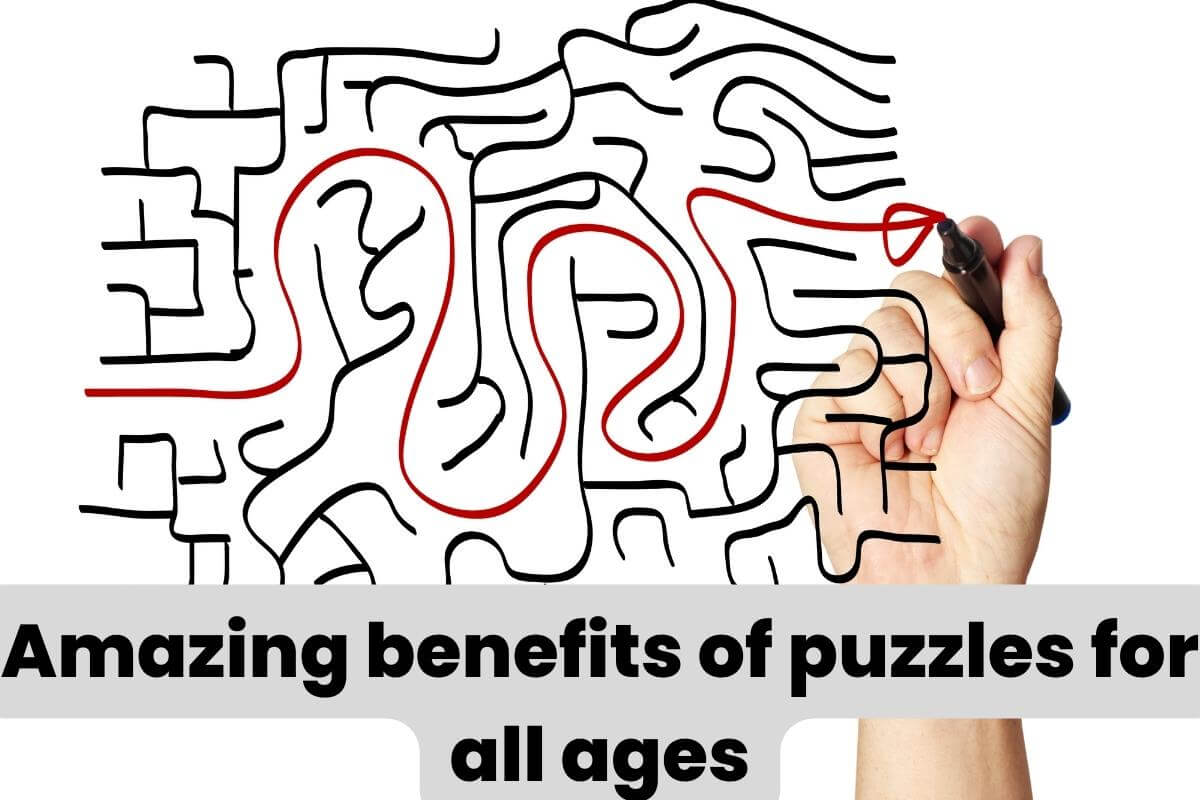
You can engage in puzzle-solving as a single or shared family activity. Crosswords, cryptograms, jigsaw puzzles, sudoku, or any other problem you enjoy solving has some great advantages.
There are benefits to puzzles for everyone, not just children or the elderly (including YOU). Find out more about the various advantages of solving puzzles.
Note: Affiliate links may be used in this page. I may receive a small commission at no extra cost to you if you use my affiliate link. Full disclosure policy here.
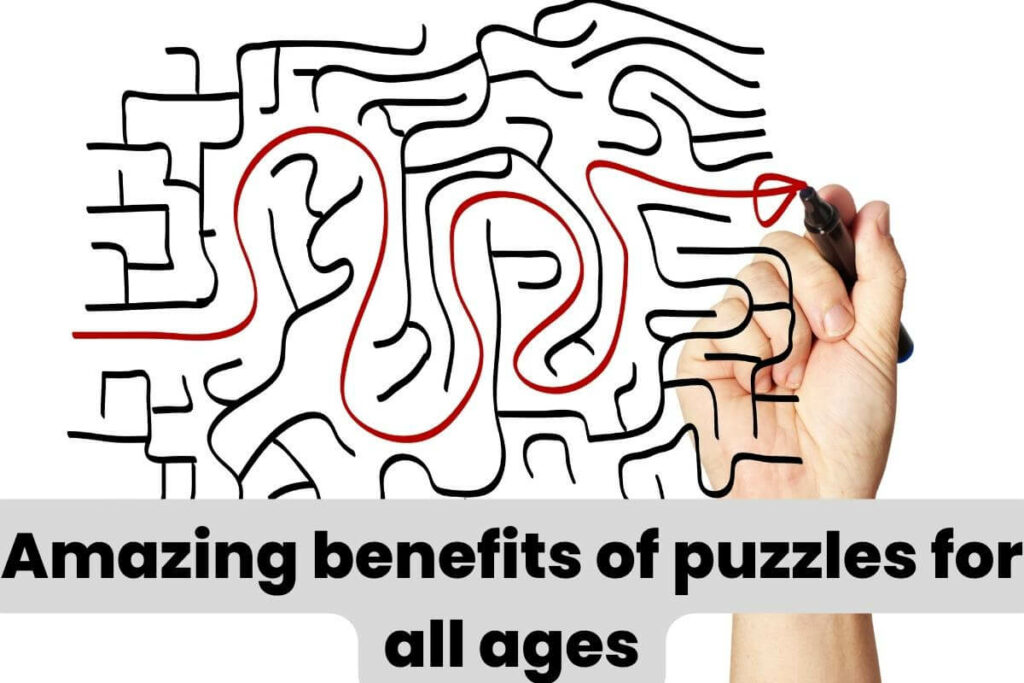
Table of Contents
- Children development
- Delay, reduce or avoid diseas
- Increase vocabulary
- Lower stres and imprive mood
- Brain exercises
- Improve memory
- Increase concentration and productivity
- Improve problem solving
- Improve spatial reasoning
- Improve attention to details
- Improve IQ
- Our puzzle books to discover
Children development
Children’s growth can be greatly aided by puzzles. Children will benefit from all the other factors stated here, but because they are still growing, they receive a little extra assistance.
Children who play with blocks, puzzles, and form games can develop their spatial skills faster than those who don’t. Children will be more prepared for math, science, and technology the stronger (and earlier) their spatial skills are developed.
Children who play with puzzles can also improve their organization, patience, and focus more quickly than kids who don’t. Children will gain from having these talents in every area of their lives.
Last but not least, children can improve their hand-eye coordination and fine motor abilities by completing physical puzzles. Putting a puzzle or block activity together involves utilizing the hands, especially the thumb and forefinger, to manage the pieces.
Make sure you choose a puzzle that is appropriate for the child. If it’s too simple, the kid will get bored and won’t be pushed. If it’s too difficult, the child will become discouraged and possibly give up. Make careful to up the complexity as the kid gets older (and gets better at puzzles)!
Delay, reduce or avoid diseas
It’s unlikely that solving puzzles will stop the onset of dementia, Alzheimer’s disease, or other illnesses. However, they could delay the start and/or minimize the severity.
Although there is little but growing data on the health advantages of puzzles, recent studies show that:
- Use of word puzzles is inversely correlated with cognitive function.
- There is a close association between the frequency of number‐puzzle use and the level of cognitive performance.
- Cognitive advancements carry on for five years after they begin.
- The onset of accelerated memory deterioration was postponed by 2.54 years by crossword puzzles.
Increase vocabulary
There are numerous methods to utilize puzzles to expand or improve your vocabulary. You may learn new words and broaden your vocabulary while also finding fresh applications for words you already know by solving puzzles. In addition, solving puzzles can aid in language learning.
Lower stres and imprive mood
Puzzle solving can significantly improve your mood by increasing dopamine production in your brain. Dopamine is frequently emitted when your brain anticipates (or experiences) a reward, which is why it’s known as the “feel good” neurotransmitter.
Every time you get a tiny tingle of “got it,” dopamine is released. You will experience a small dopamine rush when performing a word search. Sudoku? whenever you enter a number. You’ll always feel dopamine after solving a puzzle.
You’ll feel calm (less stressed) and joyful thanks to all the dopamine released when solving problems (improve mood).
Brain exercises
Puzzles are a terrific method to exercise your brain, which needs workout just like your body does.
You may have heard that your brain has a left and a right side. Your thinking side, the left side of your brain, is where logic, reason, and analytics are used. Your creative side, which employs imagination, intuition, and insights, is on the right side of your brain.
Given that they all require (at least some) logic to solve, all riddles will work the left side. Some puzzles will also exercise your right brain (such as jigsaw puzzles).
Improve memory
Is it just me, or do the benefits of puzzles seem to be mostly cognitive in nature? Here’s another one: solving puzzles can help you remember things longer.
All puzzles will aid in short-term memory improvement. For instance, to remember what you’re looking for when completing a jigsaw puzzle, you’ll need your short-term memory (shape, size, color, etc). Word searches are another instance, in which you use your short-term memory to recall a few words and search for them.
Long-term memory can benefit greatly from some puzzles. Cryptic crossword puzzles are the best because they require you to apply your prior information, which is the ideal puzzle for improving your long-term memory.
Increase concentration and productivity
Puzzles demand focus, organization, and attention to detail. Spending some time (or more time) concentrating on a problem can improve your capacity to focus on other tasks.
You are more productive when you are concentrated. Take pleasure in a puzzle and benefit from it in other areas of your life.
Improve problem solving
Essentially, puzzles are merely unsolvable issues. Your ability to solve problems will get stronger the more you use it. Solving puzzles is a lot of work!
You must develop (and employ) hypotheses, follow and modify plans, identify and fix mistakes, and change your course if something isn’t working in order to solve puzzles. Strong problem-solving in puzzles and in life requires all of these!
Improve spatial reasoning
Your capacity to visualize objects in three dimensions and reach logical conclusions is referred to as spatial thinking (even with limited information). Spatial reasoning is crucial because it enables you to comprehend, work with, and alter data and objects. Your life can be made better in many ways by having superior spatial reasoning, like becoming a better driver and packing more effectively.
Because they frequently demand you to consider how objects (such puzzle pieces and words) fit into other objects, puzzles can aid in the improvement of your spatial reasoning. These abilities help you in many facets of your life!
Improve attention to details
You can develop your attention to detail by solving puzzles. Numerous facets of life can benefit from keen attention to detail (work, driving, etc).
Finding the right piece at the right place while putting together a jigsaw puzzle takes keen attention to detail. Another type of puzzle that you might search through to find the answers to is a word or number search puzzle.
Improve IQ
Who doesn’t want to know more? You will get wiser as a result of adding up some of the other advantages of puzzles mentioned above (better memory, vocabulary, problem-solving, reasoning, etc.).
The use of memory games and puzzles to slightly raise IQ levels is showing promising outcomes in research on memory problems.
What are you waiting for? There are a ton of advantages to solving puzzles now that you are aware of them. Start taking advantage of puzzles right away!
Our puzzle books to discover
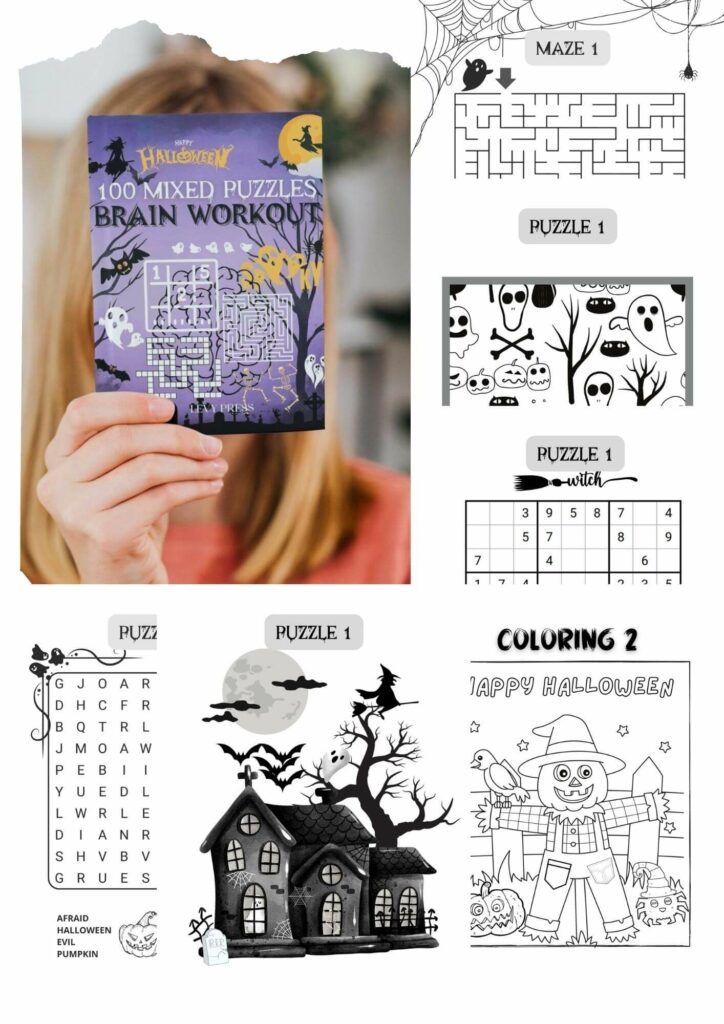
Halloween Brain Workouts: Fun Memory Training Workbook for Adults
Brain work various puzzles for seniors in French
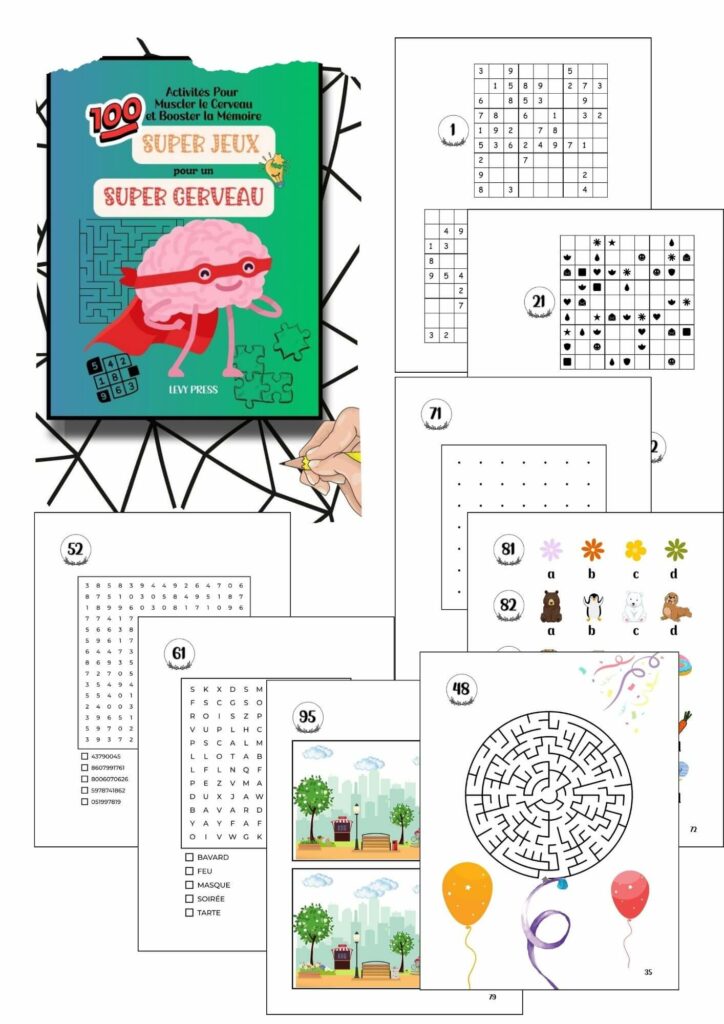
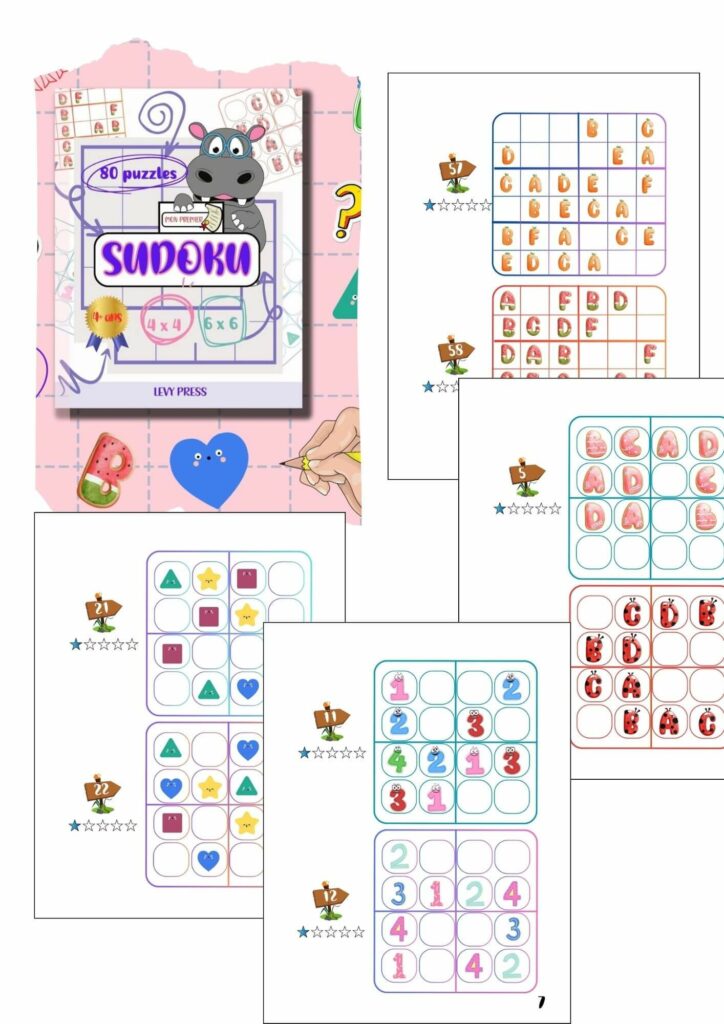
Sudoku puzzles book for kids ages 4-7, very easy and easy levels